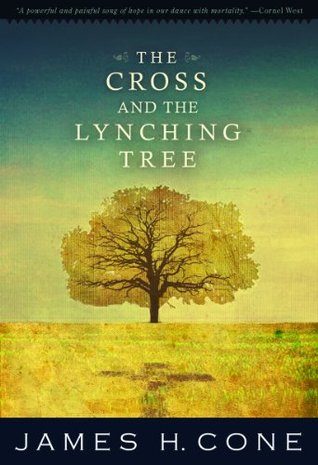More on this book
Community
Kindle Notes & Highlights
The Newark and Detroit riots in July 1967 and the assassination of Martin Luther King Jr. in April 1968 were the events that shook me out of my theological complacency, forcing me to realize the bankruptcy of any theology in America that did not engage the religious meaning of the African American struggle for justice. What I studied in graduate school ignored white supremacy and black resistance against it, as if they had nothing to do with the Christian gospel and the discipline of theology. Silence on both white supremacy and the black struggle against racial segregation made me angry with
...more
The cross is a paradoxical religious symbol because it inverts the world’s value system with the news that hope comes by way of defeat, that suffering and death do not have the last word, that the last shall be first and the first last.
The crucifixion of Jesus by the Romans in Jerusalem and the lynching of blacks by whites in the United States are so amazingly similar that one wonders what blocks the American Christian imagination from seeing the connection.[4]
What most whites call “integration” (or in the language of today, diversity) is often merely “tokenism.”
yet, we are not what we used to be and not what we will be.
“People without imagination really have no right to write about ultimate things,”[3]
One cannot correctly understand the black religious experience without an affirmation of deep faith informed by profound doubt. Suffering naturally gives rise to doubt. How can one believe in God in the face of such horrendous suffering as slavery, segregation, and the lynching tree? Under these circumstances, doubt is not a denial but an integral part of faith. It keeps faith from being sure of itself. But doubt does not have the final word. The final word is faith giving rise to hope.
“By some amazing but vastly creative spiritual insight,” theologian Howard Thurman said, “the slave undertook the redemption of the religion that the master had profaned in his midst.”[35]
Perhaps nothing about the history of mob violence in the United States is more surprising than how quickly an understanding of the full horror of lynching has receded from the nation’s collective historical memory. —W. Fitzhugh Brundage[2]
But we cannot find liberating joy in the cross by spiritualizing it, by taking away its message of justice in the midst of powerlessness, suffering, and death. The cross, as a locus of divine revelation, is not good news for the powerful, for those who are comfortable with the way things are, or for anyone whose understanding of religion is aligned with power.
He was crucified by the same principalities and powers that lynched black people in America.
Every time a white mob lynched a black person, they lynched Jesus.
One must suppose that in order to feel comfortable in the Christian faith, whites needed theologians to interpret the gospel in a way that would not require them to acknowledge white supremacy as America’s great sin.
No gulf between blacks and whites is too great to overcome, for our beauty is more enduring than our brutality. What God joined together, no one can tear apart.
If America has the courage to confront the great sin and ongoing legacy of white supremacy with repentance and reparation there is hope “beyond tragedy.”


